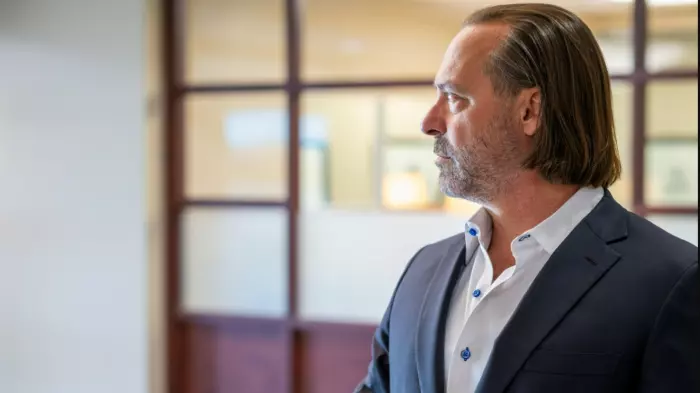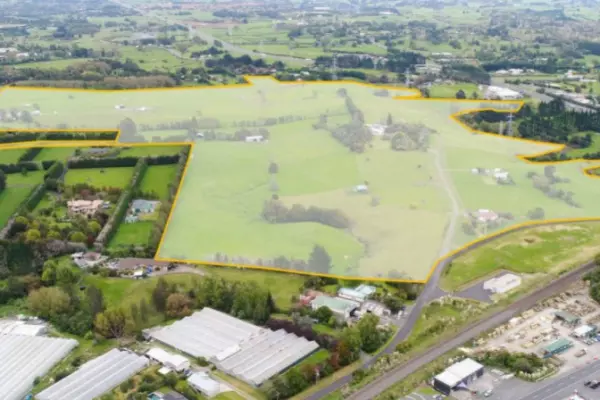BusinessDesk investments editor Frances Cook responds to emails from readers each week, answering questions about money. Below, you will find her expert advice. Send your questions to [email protected].
Hi! Love your work. Hope to get your take on my situation.
I had a home (under my dad’s name, but I was servicing the mortgage; a trust agreement was sort of set up).
Due to a bunch of reasons, we sold the property. I was left with about 25k. It could be more, but we’re assuming capital gains tax because the home might be seen as an investment property of dad's.
I have 26k in my KiwiSaver (I haven’t used the first home grant yet because, technically I didn’t buy the home).
I’m looking at moving to the UK to work and travel. I’m just a bit worried that I’m sort of in a position to possibly work towards a 10% deposit for my own first home.
I’m not really ready to settle down, and I feel now is the right time to travel and live life a bit (so far, my focus has been on school, then uni, then on my career). I’m torn because I know this time overseas isn’t going to be a time of saving a bunch.
Am I being dumb for not focusing on trying to buy now?
D.
Hi D,
Let me tell you my money philosophy before we dive into the numbers of this.
Yes, it’s important to prepare for your future. Yes, it’s important to get started young because managing money well is so much easier when you have more time.
But at the end of the day, money is only about building the life you want to live. You start with the life goals you want, then manage your money to reach them.
You don’t start with what you "should" be doing with money and then change your life to fit around it. Down that path, misery, resentment, and a midlife crisis are waiting for you.
So, do I think you should buy a house right now?
No.
Do I think that means you should do nothing at all with your money?
Also no.
Buying a house
Look, buying a house can be great for your financial future, and realistically, you’re likely to want to buy and pay off a home at some point in your life.
It provides stability, and it drastically reduces costs from your life.
But if you buy a house at the wrong time, it can be a very bad financial decision indeed.
You will need to maintain it; you will be tied to one spot, and it will need the mortgage paid every week.
Meanwhile, if you’re feeling the itch to travel, I think you should.
There are only so many times in life that you will have the freedom to before kids, work commitments and other responsibilities of life slowly start to pull you into one place.
Travelling and working in different places is an investment.
Yes, it’s an investment in your life experience and happiness. But it could also become a big investment into your career, work experience, and network.
So travelling could also be a financial decision of a sort. Even if it’s not, taking the opportunity to do that while you have fewer commitments and can actually do it? Good.
What else to do
You talk about this decision as if you're choosing whether to buy a house or be financially irresponsible and travel.
I just don’t think that’s the true decision here.
I think you can be financially responsible while travelling, even if you’re not saving much extra.
You have a KiwiSaver with $26,000 in it – a fantastic start.
The general rule of thumb is that if you’re not planning to use it for more than five years, for a home or retirement, then a growth fund is likely the best place for it.
That means it would be mostly invested into shares. It would give you the opportunity to make more money and have a nice nest egg waiting for you once you return to New Zealand and are rethinking whether you want to buy a house.
The $25,000(ish) you have outside of KiwiSaver could also be invested in the share market.
Shares actually make more money than property does.
The S&P 500 (a fund of the 500 biggest companies in the US) grew an average of 9.65% a year between 1992 and 2022.
Meanwhile, NZ housing, for all of its stunning booms, has grown on average 6.1% a year between 1991 and 2023.
So, if you invested your money in an index fund and left it alone to earn a return while you’re having a great time overseas, you could still be financially fine.
Keeping that deposit nest egg earning means it will still be worth enough to slap down on a house in the future, rather than putting it into a savings account and having house prices run away from you.
In fact, you may even find you come back to a bigger deposit than you started with.
Key takeaway? Life is for living, then you make a money plan that fits it, that still takes care of now-you and future-you.
Yes, you absolutely can have your cake and eat it, too.
Send questions to [email protected] if you want to be featured in the column. Emails should be about 200 words, and we won't publish your name. Unfortunately, Frances is not able to respond to every email received or offer individual financial advice.
Information in this column is general in nature and should not be taken as individual financial advice. Frances Cook and BusinessDesk are not responsible for any loss a reader may suffer.














